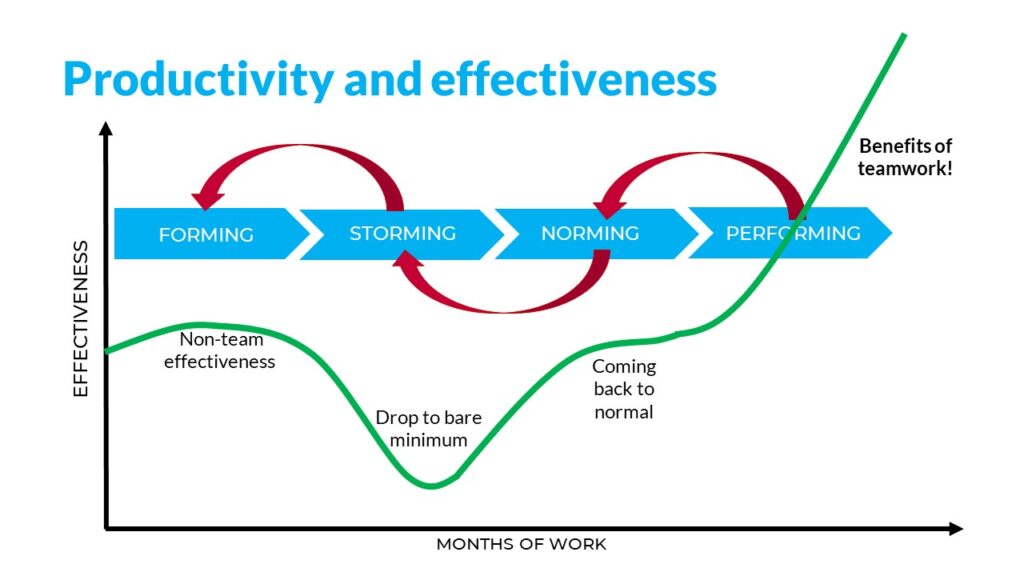Based on the model first proposed by Bruce Tuckman in 1965. Learn more on Wikipedia
When a new team is constructed, they enter a forming stage. They start as a group of individuals and, therefore, do not get any benefits of teamwork. They work in silos and have difficulty collaborating.
However, the whole point of putting people in teams is to nurture teamwork that allows people to achieve more than what they could do on their own or just as a group of individuals. A team works more effectively and gets benefits from smooth collaboration.
Your goal as a Scrum Master is to help the team get to a stable stage where they are able to work effectively and improve. It won’t mean that they no longer need you. Instead, it will mean that they are able to resolve internal challenges and can collaborate with each other without the need for external facilitation.
| Forming | Storming | Norming | Performing |
| Team formation. Team members are unfamiliar with each other and work in silos. There is very little collaboration and no understanding of mutual goals. Team members don’t think they need others to achieve their goals. | Disagreements surface. Team members start to understand that they need to collaborate with others. They cannot do it effectively as they are still focused on individual goals. | Getting back to standard productivity level. Team members work towards mutual goals and have set up clear norms and boundaries for effective collaboration. Disagreements still surface and might need external facilitation. | True benefits of teamwork become apparent. Team becomes self-sufficient. They find their own ways to approach difficult problems. They continuously work on improving their effectiveness. |

Get to norming as fast as possible #
Here are a few practices and techniques you can use to help your team progress to the morning stage faster:
- Creating team working agreements a.k.a. a social contract
- Clearly defining roles and responsibilities together with the team
- Creating clarity around goals and processes
- Organizing work around teams, not teams around projects

